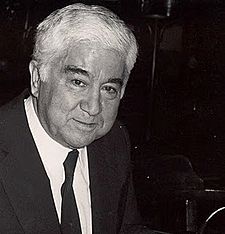Aziz Nesin facts for kids
Quick facts for kids
Aziz Nesin
|
|
|---|---|
 |
|
| Born |
Mehmet Nusret
20 December 1915 |
| Died | 6 July 1995 (aged 79) Alaçatı, Çeşme, Turkey
|
| Nationality | Turkish |
| Occupation | Writer and humorist |
| Years active | 1945–95 |
| Spouse(s) | Vedia Nesin (m. 1939–48) Meral Çelen (m. 1956–67) |
| Children | Oya Nesin Ali Nesin Ateş Nesin Ahmet Nesin |
Aziz Nesin ( born Mehmet Nusret, 20 December 1915 – 6 July 1995) was a Turkish writer, humorist and the author of more than 100 books. Born in a time when Turks did not have official surnames, he had to adopt one after the Surname Law of 1934 was passed. Although his family carried the epithet "Topalosmanoğlu", after an ancestor named "Topal Osman", he chose the surname "Nesin". In Turkish, Nesin? means, What are you?.
Pseudonyms
Generally going by the name "Aziz Nesin", the name "Aziz" was originally his father's nickname, used by Nesin for the pseudonym under which he started publishing. He wrote under more than fifty noms de plume, such as the pseudonym "Vedia Nesin", his first wife's name, which he used for love poems published in the magazine Yedigün.
Biography
He was born in 1915 on Heybeliada, one of the Princes' Islands of Istanbul, in the days of the Ottoman Empire. After serving as a career officer for several years, he became the editor of a series of satirical periodicals with a socialist slant. He was jailed several times and placed under surveillance by the National Security Service (MAH in Turkish) for his political views.
Nesin provided a strong indictment of the oppression and brutalization of the common man. He satirized bureaucracy and "exposed economic inequities in stories that effectively combine local color and universal truths". Aziz Nesin has been presented with numerous awards in Turkey, Italy, Bulgaria and the former Soviet Union. His works have been translated into over thirty languages. During latter parts of his life he was said to be the only Turkish author who made a living only out of his earnings from his books.
On 6 June 1956, he married a coworker from the Akbaba magazine, Meral Çelen.
In 1972, he founded the Nesin Foundation in Catalca. The purpose of the Nesin Foundation is to take, each year, four poor and destitute children into the Foundation's home and provide every necessity - shelter, education and training, starting from elementary school - until they complete high school, a trade school, or until they acquire a vocation. Aziz Nesin donated to the Nesin Foundation his copyrights in their entirety for all his works in Turkey or other countries, including all of his published books, all plays to be staged, all copyrights for films, and all his works performed or used in radio or television.
Aziz Nesin was a political activist. In the aftermath of the 1980 military coup led by Kenan Evren, Turkish intelligentsia faced heavy oppression. Aziz Nesin led a number of intellectuals to rebel against the military government, by issuing the Petition of Intellectuals (Turkish: Aydınlar Dilekçesi), notable signatories of which included Yalçın Küçük, Korkut Boratav, Atıf Yılmaz and Murat Belge. He was the two-time President of Türkiye Yazarlar Sendikası (Turkish Writers' Union) once from 1975 to 1980, and subsequently from 1987 to 1989.
He was also a critic on Islam. In the early 1990s, he began a translation of Salman Rushdie's controversial novel, The Satanic Verses. This provoked outrage from Islamic organizations, who were gaining popularity throughout Turkey, who then tried to hunt him down. On July 2, 1993 while attending a mostly Alevi cultural festival in the central Anatolian city of Sivas, a mob organized by Islamists gathered around the Madimak Hotel, where the festival attendants were accommodated. After hours of siege, the intruders set the hotel on fire. After flames engulfed several lower floors of the hotel, firetrucks managed to get close, and Aziz Nesin and many guests of the hotel escaped. However, 37 people were killed. This event, also known as the Sivas massacre, was perceived as censorship, and human rights in Turkey were allegedly disrupted at that time. It also deepened the rift between fundamentalist Muslims and those that they regard as infidels.
He devoted his last years to combating religious fundamentalism. Aziz Nesin died on 6 July 1995 in Çeşme, İzmir, due to a heart attack. After his death, his body was buried at an unknown location in land belonging to the Nesin Foundation, without any ceremony, as requested in his will.
See also
 In Spanish: Aziz Nesin para niños
In Spanish: Aziz Nesin para niños

